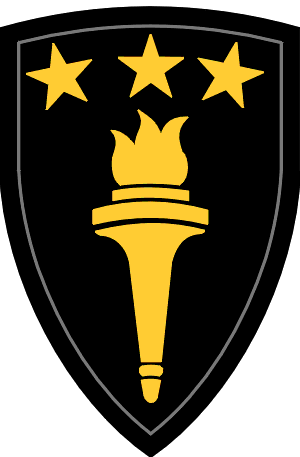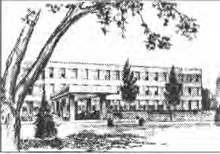Products
SSI & US Army War College Press major product are studies published by the institute and distributed to key strategic leaders in the Army and Department of Defense, the military educational system, Congress, the media, other think tanks and defense institutes, and major colleges and universities. SSI studies use history and current political, economic, and military factors to develop strategic recommendations. These studies often influence the formulation of U.S. military strategy, national security policy, and even the strategies of allies and friends. SSI analysts have contributed to major U.S. national security strategy documents and to U.S. Army doctrine. The U.S. Army War College also hosts a major annual strategy conference at Carlisle Barracks.
Parameters is a referred journal of ideas and issues, providing a forum for the expression of mature thought on the art and science of land warfare, joint and combined matters, national and international security affairs, military strategy, military leadership and management, military history, ethics, and other topics of significant and current interest to the US Army and Department of Defense. It serves as a vehicle for continuing the education and professional development of USAWC graduates and other senior military officials, as well as members of government and academia concerned with national security affairs.
Staff
National security experts such as Harry Summers, Sherifa Zuhur, Jeffrey Record, Phil Williams, Sheila Jager, Robert (Robin) Dorff, Douglas MacDonald, Thomas-Durrell Young, Andrew Scobell, Cori Dauber, Dallas Owens, and Stephen Biddle have been faculty members or associated with SSI in the past. Strategic thinkers such as Michael Howard, Colin Gray, Daniel Byman, Thomas Marks, Dennis Ippolito, Amit Gupta, Leonid I. Polyakov, Williamson Murray, John White, John Deutch, Steven Metz, and Eliot Cohen have written SSI studies. The current director of SSI is Carol Evans. Tom Kardos is deputy director. Antulio Echevarria is the Editor-in-Chief of the USAWC Press and the USAWC Quarterly Journal, Parameters. SSI's analytical staff includes Don Snider, Trey Braun, John Deni, Leonard Wong, Tony Pfaff, Chris Bolan, Chris Mason, Nate Freier and Robert Evan Ellis. In addition to their work for SSI, the institute's staff analysts are well-known experts in their fields with multiple publications, congressional testimony, and many media interviews.

Ali Ahmad Jalali is an Afghan politician, diplomat, and academic. Jalali served as the Minister of Interior from January 2003 to September 2005. He has also been a distinguished professor at the Near East South Asia Center for Strategic Studies (NESA) at the National Defense University in Washington, D.C. In August 2021, amid the collapse of the US-backed Afghan government, Jalali was rumored to become the leader of the Taliban-controlled interim Afghan government, which he has denied on Twitter as "fake news."

The Naval War College is the staff college and "Home of Thought" for the United States Navy at Naval Station Newport in Newport, Rhode Island. The NWC educates and develops leaders, supports defining the future Navy and associated roles and missions, supports combat readiness, and strengthens global maritime partnerships.

The United States Army War College (USAWC) is a U.S. Army educational institution in Carlisle, Pennsylvania, on the 500-acre (2 km2) campus of the historic Carlisle Barracks. It provides graduate-level instruction to senior military officers and civilians to prepare them for senior leadership assignments and responsibilities. Each year, a number of Army colonels and lieutenant colonels are considered by a board for admission. Approximately 800 students attend at any one time, half in a two-year-long distance learning program, and the other half in an on-campus, full-time resident program lasting ten months. Upon completion, the college grants its graduates a master's degree in Strategic Studies.

The National Defense University (NDU) is an institution of higher education funded by the United States Department of Defense aimed at facilitating high-level education, training, and professional development of national security leaders. As a chairman's Controlled Activity, NDU operates under the guidance of the Chairman of the Joint Chiefs of Staff (CJCS), with Lieutenant General Michael T. Plehn, USAF, as president. It is located on the grounds of Fort Lesley J. McNair in Washington, D.C., near the White House and the US Congress.

Carlisle Barracks is a United States Army facility located in Carlisle, Pennsylvania. The site of the U.S. Army War College, it is the nation's second-oldest active military base. The first structures were built in 1757, during the French and Indian War between Great Britain and France in the colonies.

Fort Lesley J. McNair is a United States Army post located on the tip of Greenleaf Point, the peninsula that lies at the confluence of the Potomac River and the Anacostia River in Washington, D.C. To the peninsula's west is the Washington Channel, while the Anacostia River is on its south side. Originally named Washington Arsenal, the fort has been an army post for more than 200 years, third in length of service, after the United States Military Academy at West Point and the Carlisle Barracks. The fort is named for General Lesley James McNair, who was killed in action by friendly fire in Normandy, France during World War II.
Steven Kent Metz is an American author and professor of national security and strategy at the U.S. Army War College specializing in insurgency and counterinsurgency, American defense policy, strategic theory, the African security environment, and future warfare.

John Donald Wesley Corley is a retired four-star general in the United States Air Force. He previously served as the commander of Air Combat Command from October 2007 to September 10, 2009, and as the 32nd Vice Chief of Staff of the Air Force from September 2005 to September 2007. He retired from the Air Force on November 1, 2009.
Intelligence dissemination management is a maxim of intelligence arguing that intelligence agencies advise policymakers instead of shaping policy. Due to the necessity of quick decision-making in periods of crisis, intelligence analysts may suggest possible actions, including a prediction of the consequences of each decision. Intelligence consumers and providers still struggle with the balance of what drives information flow. Dissemination is the part of the intelligence cycle that delivers products to consumers, and intelligence dissemination management refers to the process that encompasses organizing the dissemination of the finished intelligence.

The Basic Strategic Art Program (BSAP) is an academic program taught at the U.S. Army War College at Carlisle Barracks, Pennsylvania. The course was designed to support the educational requirements for Functional Area FA59 (FA59), U.S. Army Strategist, formerly called Strategic Plans and Policy. The first course began in 2003 and the school continues to teach three 16-week courses per year.

Richard L. Kugler is an American thinker and writer on U.S. national security policy and defense strategy.
Lewis Stone "Bob" Sorley III is an American intelligence analyst and military historian. His books about the U.S. war in Vietnam, in which he served as an officer, have been highly influential in government circles.
Leonard Wong is a Research Professor of Military Strategy in the Strategic Studies Institute at the U.S. Army War College, who focuses on the human and organizational dimensions of the military, and is a published author on leadership strategy.
In the political field, a war of ideas is a confrontation among the ideologies that nations and political groups use to promote their domestic and foreign interests. In a war of ideas, the battle space is the public mind: the belief of the people who compose the population. This ideological conflict is about winning the hearts and minds of the people. Waging a war of ideas can involve think tanks, television programs, journalistic articles, government policies, and public diplomacy. In the monograph: 'Wars of Ideas and The War of Ideas' (2008), Antulio J. Echevarria defined the war of ideas as:
A clash of visions, concepts, and images, and — especially — the interpretation of them. They are, indeed, genuine wars, even though the physical violence might be minimal, because they serve a political, socio-cultural, or economic purpose, and they involve hostile intentions or hostile acts.. .. Four general categories [include]. .. (i) intellectual debates, (ii) ideological wars, (iii) wars over religious dogma, and (iv) advertising campaigns. All of [the categories] are essentially about power and influence, just as with wars over territory and material resources, and their stakes can run very high indeed.
Joint unconventional warfare is the inter-agency, or international implementation of an unconventional warfare strategy, comprising elements of asymmetric warfare, irregular warfare, urban warfare and various forms of psychological operations deployed by non-traditional means.
In political science, the defense industrial base, or defense industrial and technological base is a government's industrial assets that are of direct or indirect importance for the production of equipment for a country's armed forces. It is loosely associated with realism, which views the state as the preponderant guarantor of security, and frequently features as an element of grand strategy and defense policy, as well as diplomacy.
The Fletcher School's International Security Studies Program is a center for the study of international security studies and security policy development. It was established in 1971 at The Fletcher School of Law and Diplomacy, Tufts University. ISSP conducts its academic activity through courses, simulations, conferences, and research. It also has a military fellows program for midcareer U.S. officers.

Frank Leith Jones Jr. is an American academic, public servant and military historian. He published his first book in 2013, Blowtorch: Robert Komer, Vietnam, and American Cold War Strategy, a biography of Robert Komer who served as "national security policy and strategy adviser" to three Presidents. In 2020, he published Sam Nunn: Statesman of the Nuclear Age, a study of the impact Senator Nunn had on US national security and policy during the Cold War and its immediate aftermath.

Sarah E. Zabel is a retired United States Air Force general and former vice director of the US Defense Information Systems Agency (DISA) where she managed a federal agency of 16,000 military, civilian and contract personnel. Her principal mission was to plan, develop, deliver and operate command and control capabilities and a global enterprise infrastructure in direct support of the president, the secretary of defense, the Joint Chiefs of Staff, the combatant commanders, the Department of Defense components and other mission partners across the full spectrum of operations.
United States Army Strategist or Functional Area 59 or FA59 is a functional area of the United States Army. While the U.S. military and Army has had strategic thinkers throughout its history, the United States Army's FA59 career field emerged in the late 1990's with its first cohort beginning duty in 2001, partially due to arguments made by General John R. Galvin in a 1989 article advocating for military strategists during a period of declining strategic expertise in the United States. Colonel (Ret.) Charles Moore stated that by 2010 the "return of the Army Strategist" was already reversing this decline.











